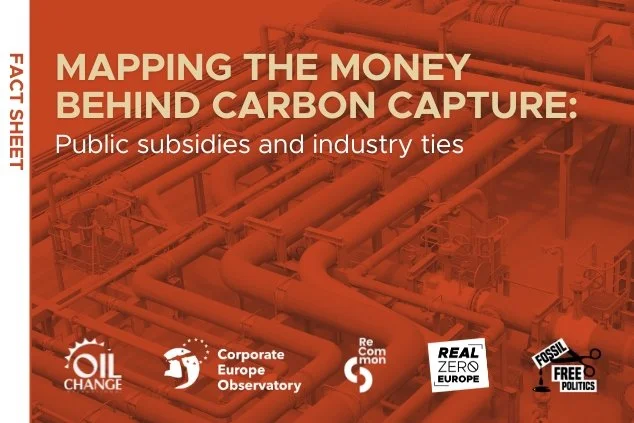Will Germany go down the path of dangerous distractions?
Written by: Kerstin Meyer, BUND (Friends of the Earth Germany) and Christian Völker, BUND Hamburg
Germany’s next governing coalition wants to open the door to CCS, carbon removals, and international offsets as substitutes for emissions reductions, jeopardizing its energy transition and real climate solutions in polluting industries. Both parties agreed to fast-track sweeping legislation to pre-empt and disable popular opposition.
After the snap elections in February, the Christian Democrats (CDU, 22.6%) and the Social Democratic Party (SPD, 16.4%) concluded their coalition deal, a 144-page political agenda. On climate, the agreement makes few concrete proposals — and those mostly go in the wrong direction.
In a surprising move, the parties demand that the EU2040 climate goals allow emissions to be offset through international credits or permanent carbon removals. Opening the door to international carbon credit markets would clearly weaken Germany’s climate action.
Carbon removals — or “negative emissions” — have also become a new hype in German climate policy since a loophole for “technical removals targets” was opened in the German climate law in 2023.
Industry actors hope to generate “negative” emission certificates by burning biomass (like woodchips), capturing the CO2 originating from this process, and dumping it in a pipeline. A growing industry that produces biochar is also hoping to benefit. This would clearly increase demand for timber, which is especially concerning as the parties are now planning a “review” of caps on biomass use.
But the false solutions do not end there. The deal also sets out CCS as a major pillar of future German climate policy and promises extensive CO2 transport infrastructure. This builds on the outgoing government's plans but goes even further.
The long-standing ban on injecting CO2 underground, other than for demonstration purposes, is set to be lifted, allowing CO2 storage both offshore and onshore. Quite an audacious move, as in 2012, successful protests against CO2 injection plants had led to the current restrictive CCS policy. Unsurprisingly, the coalition’s announcement has provoked a public outcry in the northern states of Schleswig-Holstein and Lower Saxony.
Furthermore, the parties agreed to explicitly allow CCS on gas-fired power stations, including combined heat and power plants — something the SPD had previously strongly opposed. In an interview, SPD renewables expert Nina Scheer — who likely helped secure a push for renewable energy expansion in the deal — described it as a “compromise” but warned of the danger of CCS leading to further fossil fuel dependency.
And that risk is real, as the coalition agreement fails to commit to a fossil fuel phase-out. Instead, it announces a tender for 20 GW of new gas power plants. The governing parties are even explicit in their promise to sign “long term gas import contracts” and to exploit new natural gas resources domestically. How can this leave climate targets “untouched,” as the agreement claims, when the climate impact of new gas projects is unambiguously clear?
The text also evokes CCS for steelmaking, defying an industry-wide consensus to end a century of blast furnace methods by switching to direct reduced iron technology. Major refurbishment projects for traditional production sites are underway, and large-scale green hydrogen electrolyser projects are critical to ensure sufficient hydrogen supply. Financing schemes for all these projects rely on an integrated hydrogen economy, spanning production, delivery, and use within Germany. Now, the narrative could change again, with “CCS-ready” code for not quitting fossil fuels.
Finally, despite widespread international evidence of CCS failures and risks, the new German coalition seems set to assign overriding public interest to the planned CO2 infrastructure. Scrutiny of CCS projects and their claimed climate benefits could thus be minimized or circumvented. Communities would find it harder to ensure health and environmental protection, as well as local water and energy safety. Landowners would have little to no legal remedy against expropriation.
However, curbing the political rights of citizens, communities, and organizations may also exacerbate conflicts.
Dropping climate commitments via international credit markets and carbon removals are abstract policy proposals that hardly make the news, but as the large scale CCS plans become more widely known, mainstream media has become more questioning.
The newly designated Minister of the Economy, Katherina Reiche, promoted CCS for coal-fired power stations 15 years ago — when that strategy already failed. Now her party wants to fast-track the upcoming parliamentary debate on ‘CCS for everything’ and get it over with before the summer break. The CCS promoters’ fear of an open public debate is tangible.
The views and opinions expressed in the publication are those of the mentioned organisation and do not necessarily reflect the position of all Real Zero Europe members.
Related resources:





